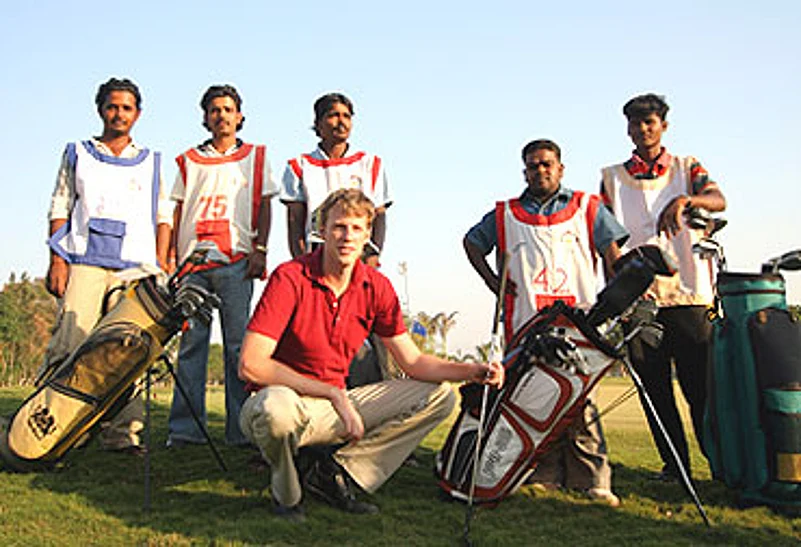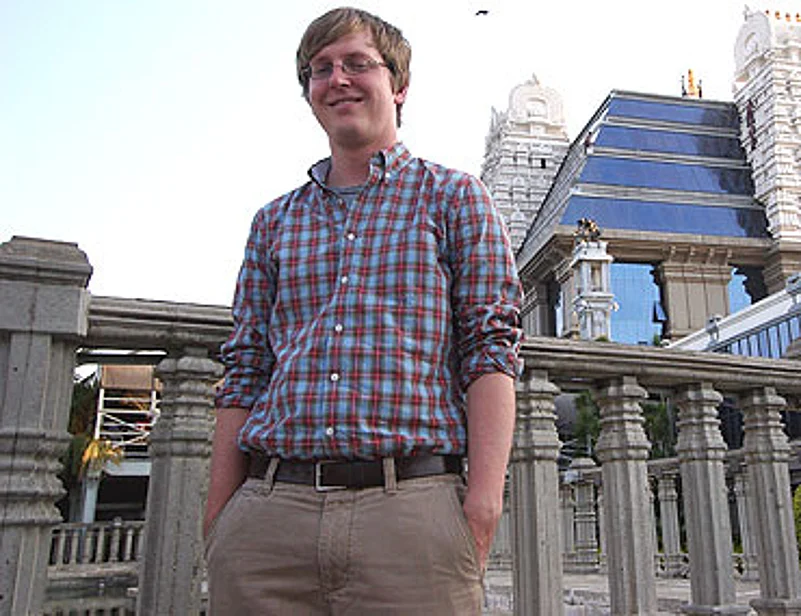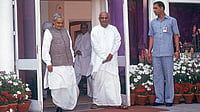
Globalisation, as experienced by caddies
Like Wesley and Sonali, other scholars from US and European universities are holding a magnifying glass to Bangalore's transient present, their research topics ranging from the obvious to the peculiarly new. Patrick Inglis, a doctoral candidate from the City University of New York, has perhaps the most unusual topic. He is trying to understand how golf caddies from low socio-economic and mainly low caste backgrounds are negotiating the new ideas, people and technologies shaping the city. "I am particularly interested in learning how their interaction with the elite at golf clubs and with each other in these settings inform their opinions and views on the city, their future, and the future of their families," says Patrick. The study is being carried out with caddies at KGA, the Bangalore Golf Club, and the Eagleton Club.
Patrick admits that his interest in golf caddies was derived, in part, from his reading of Friedman's bestseller, The World is Flat. "I don't agree with what Friedman has to say, but whether you like it or not, the book is central to a larger debate on globalisation. My research is concerned literally and figuratively with what is happening on the ground, in the lives of the people who do the type of low-tech, low-skilled labour that Friedman and other journalists and economists don't necessarily make room for in their analyses," he told Outlook.
Bregje Snel from the department of cultural anthropology at the University of Utrecht in the Netherlands is, like Patrick, looking at the impact of globalisation at a micro level. Her central research question is: How do people see the changes Bangalore went through or has been going through? Do non-IT people feel included in Bangalore's growth? "I am trying to speak to a variety of people from businessmen to builders and street vendors," she says. Malini Ranganathan, a PhD candidate from the University of California at Berkeley, isn't asking the question of inclusion and exclusion directly but is approaching it, rather imaginatively, through the city's water supply systems. "I am examining challenges related to water supply and access in Bangalore. I am particularly interested in the politics of infrastructure projects and urban reforms," she explains.
Eric Eide from the University of Michigan, Ann Arbor, is studying what may seem like an obvious topic—the 'outsourcing' business. However, his formidably titled study—'Industrial Upgrading in India's Information Technology Enabled Service Industry'—is a nuanced take. "The focus has traditionally been on the impact outsourcing has on the country that loses these jobs. My study focuses on the impact on the country that gains these jobs," he says.

Wesley Longhofer, US
How corporate altruism affects Bangalore
Going by what these young scholars and many others like them are studying, can it be assumed that Western social science has got over its fixation on India's past and caste? According to Malini, scholars are coming here to study a variety of subjects—globalisation yes, but also, she says, recalling her experiences at a conference at the American Institute of Indian Studies in New Delhi in January, "subjects as varied as art history, architecture, Qawwali music, the history of Mohiniattam, and Marwaris in contemporary literature". Sonali argues that India's past has not become less important, but there is an increasing interest, alongside, in the areas that are seen as 'cutting edge'. "I don't think you can discard the influence of caste in India. Even if social scientists are not focusing their studies on it, caste and socio-economic status are still variables examined in most studies to see what has changed," she says. Wesley makes a similar point: "The interest in caste and language have not necessarily waned but there is certainly a heightened interest in India's future among Western academics. If you peruse bestseller lists, the books on India's future are doing extremely well."
Patrick clarifies, however, that Western academia is less interested today in studying a city or a country and its particular habits and cultures in isolation. "For most researchers who study abroad, the goal is to link what happens within cities and nations to what is going on beyond their borders and throughout the world. It's about understanding how cities and nations fit within larger political and economic processes and structures shaping the 21st century. Most Western students I know are not training to be India specialists or scholars, and that may be the shift we are speaking about." An Indophile of the old school would have swiftly responded with a single scriptural utterance: Vasudaiva Kutumbakam —the universe is one family!


























